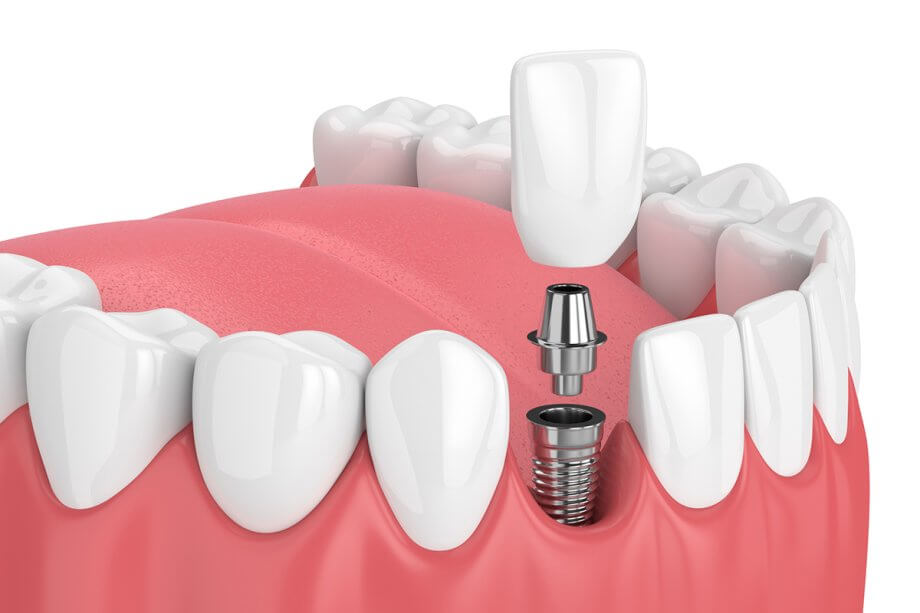If you're missing teeth, you know how it can affect your confidence and daily life. No matter how it happened, whether due to an accident, injury, or decay, you want to find a solution that can restore your smile and your ability to eat and talk comfortably.
One option that many people consider is dental implants. But are they the right solution for you?
In this article, we'll explore what dental implants are, the benefits they offer, and who is a good candidate for this procedure. We'll also address common concerns and misconceptions about dental implants, so you can make an informed decision about whether they're the right choice for you.
Benefits of Dental Implants
Dental implants offer several benefits over other tooth replacement options. For one, dental implants look and feel like natural teeth. They are also incredibly durable and can last a lifetime with proper care. Additionally, dental implants can help preserve bone density, which can prevent further tooth loss and maintain the shape of your face.
Another benefit of dental implants is that they do not require any special care beyond regular brushing and flossing. Unlike dentures, which can be removed and may require special cleaning solutions, dental implants are a permanent part of your mouth and can be treated just like your natural teeth.
Types of Dental Implants
There are two main types of dental implants: endosteal implants and subperiosteal implants.
- Endosteal implants are the most common type of dental implant and involve placing a small titanium post into the jawbone, which serves as the root of the new tooth.
- Subperiosteal implants are less common and involve placing a metal framework onto the jawbone, which is then used to support the new tooth.
Different materials can be used for dental implants, including titanium and zirconia. Titanium is the most commonly used material due to its strength, durability, and biocompatibility.
Am I a Candidate for Dental Implants?
Not everyone is a candidate for dental implants. In order to be considered for dental implants, you must have healthy gums and enough bone density to support the implant. If you have already experienced significant bone loss, you may require a bone graft before you can receive dental implants.
Additionally, certain medical conditions can affect your candidacy for dental implants. For example, if you have uncontrolled diabetes or are undergoing radiation therapy, you may not be able to receive dental implants.
You will want to discuss your medical history with your dentist to determine if dental implants suit you.
The Dental Implant Process
The dental implant process typically involves several stages. The first stage is the placement of the titanium post into the jawbone. This is done under local anesthesia and may require a small incision in the gum tissue. Once the post is in place, a healing period of several months is required to allow the post to fuse with the bone in a process called osseointegration.
After the healing period is complete, an abutment is placed onto the post, which serves as a connection point for the new tooth. Finally, a dental crown is placed onto the abutment, which is designed to look and function like a natural tooth.
Recovery and Aftercare for Dental Implants
Recovery from dental implant surgery typically involves some discomfort and swelling, which can be managed with over-the-counter pain medication and ice packs. It is important to avoid hard or sticky foods during the healing period and to keep the surgical site clean with gentle brushing and rinsing.
After the dental implant has fully healed and the new tooth is in place, it is important to maintain good oral hygiene habits to prevent infection or other complications. This includes regular brushing and flossing, as well as routine dental checkups.
Comparing Dental Implants to Other Tooth Replacement Options
While dental implants offer many benefits, they are not the only option for replacing missing teeth. Other popular tooth replacement options include dentures and bridges.
Dentures are removable devices that are designed to replace multiple missing teeth. While they can be a cost-effective option, they can also be uncomfortable and may require frequent adjustments. Additionally, dentures do not prevent bone loss in the jaw, which can lead to further tooth loss and changes in facial shape.
Bridges are another option for replacing missing teeth. Bridges involve attaching a prosthetic tooth to the surrounding teeth using dental crowns. While bridges can be a good option for some people, they do require the removal of healthy tooth structure from the surrounding teeth and may not be as durable as dental implants.
Dental Implants in Bergen County, NJ
Dental implants are a popular and effective solution for missing teeth, but they are not right for everyone.
If you are considering dental implants, contact us at 862-247-8030 to discuss your candidacy. Our dentist will carefully consider the benefits and drawbacks of this tooth replacement option. With the right care and maintenance, dental implants can provide a lifetime of benefits and a confident, healthy smile.


